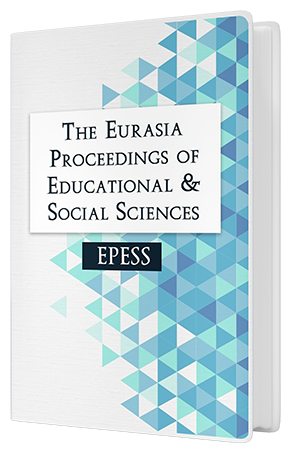Civic Education in Greek Educational System: Empirical Approach in Schools of Central Macedonia of Greece
Keywords:
Civic education, PoliticizationAbstract
Politicization is the process by which norms, values and behaviors are learned; Easton and Dennis (1980) refer to "developmental processes by which individuals are socialized politically" (p.7) while Dawsom and Prewitt (1969) refer to “the development process with which the citizen matures politically"(p. 71). Similarly, Rush and Althoff (1971) consider that political socialization as "the process that results in the acquisition of all the politically oriented experiences the individual needs. These experiences are not only political in the narrow sense, but they are relevant because they shape their political behavior "(p. 3). Scholars, however, question the way in which young people acquire these values in schools and elsewhere, as well as whether these values are real values for young people (Gimpel, Lay, & Schuknecht, 2003). What is generally known is that at some point in time a person will be integrated into a given political ideology or value. This view of political socialization overlooks the idiosyncratic personal development of the new man (Dahlgren, 2009). This paper seeks to outline the degree of effectiveness of civic education in Greek public schools. Civic education effectiveness was measured by students' knowledge of eight variables related to issues of everyday politics. The variables concerned pupils' views on the political system in Greece, their knowledge of political system name, their knowledge of the way of election of the president of democracy, the time of each government election, the right to vote, who is President of Democracy and who the Minister of Education. Finally, the students were asked about the political space in which they integrate themselves. In addition, the effect of factors on the above variables was also examined, such as urbanity, gender and grade. The results of the survey include the fact that there is statistically significant difference between genders and the political space in which they integrate themselves. Also, the political space influences the performance grade, given the fact that students who belong to anarchist space have the lowest grade in the previous school year. Our analysis of political socialization is based on the assumption that next to a rational choice utilitarian process, which guides us in matters of party preference and voting behavior, lays a less-than-rational cognitive process of moral decisions, which is based on definite notions of good and evil. This analysis allowed us to capture visually these discourses in the form of “semantic maps.”Downloads
Published
Issue
Section
License
Copyright (c) 2018 The Eurasia Proceedings of Educational and Social Sciences

This work is licensed under a Creative Commons Attribution-NonCommercial-ShareAlike 4.0 International License.
The articles may be used for research, teaching, and private study purposes. Any substantial or systematic reproduction, redistribution, reselling, loan, sub-licensing, systematic supply, or distribution in any form to anyone is expressly forbidden. Authors alone are responsible for the contents of their articles. The journal owns the copyright of the articles. The publisher shall not be liable for any loss, actions, claims, proceedings, demand, or costs or damages whatsoever or howsoever caused arising directly or indirectly in connection with or arising out of the use of the research material. All authors are requested to disclose any actual or potential conflict of interest including any financial, personal or other relationships with other people or organizations regarding the submitted work.




